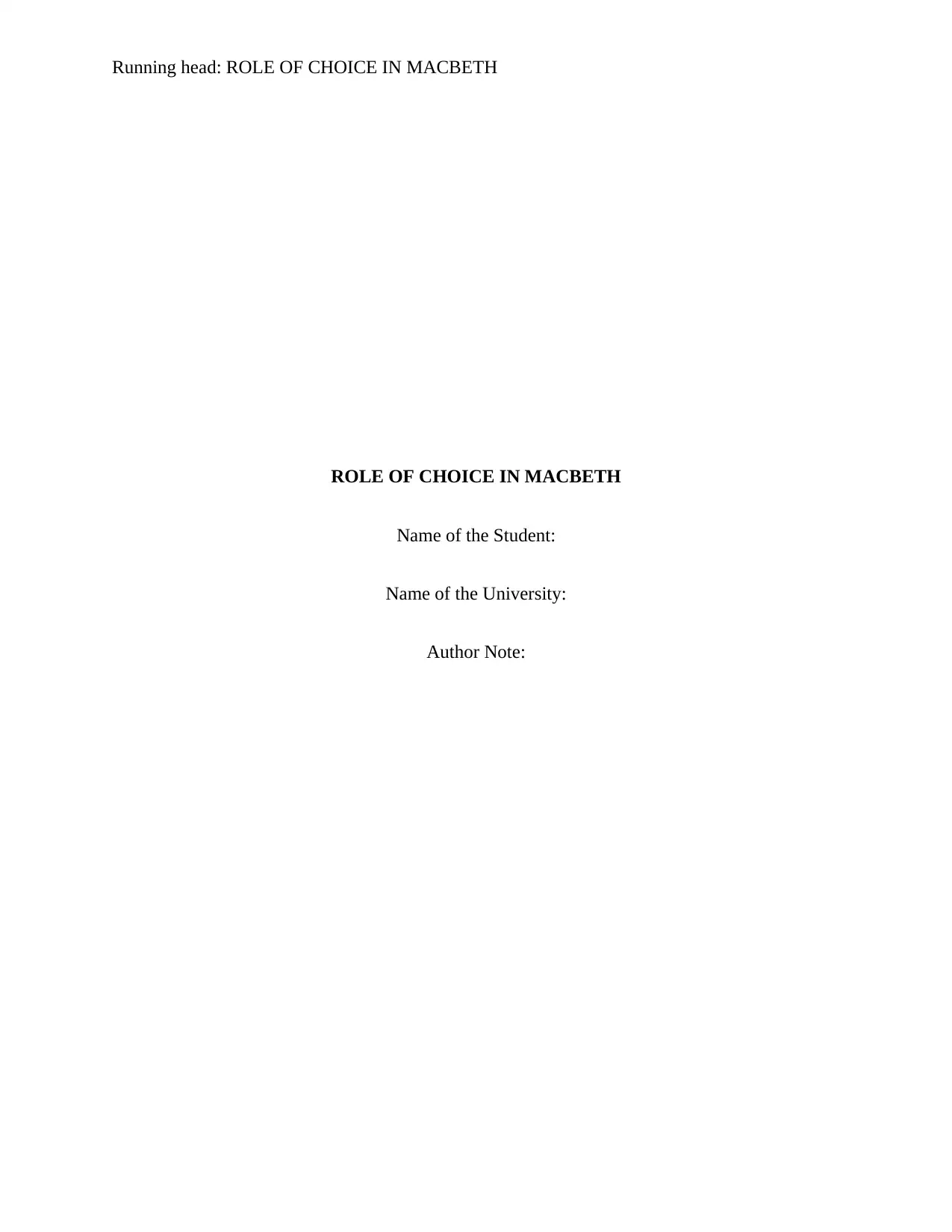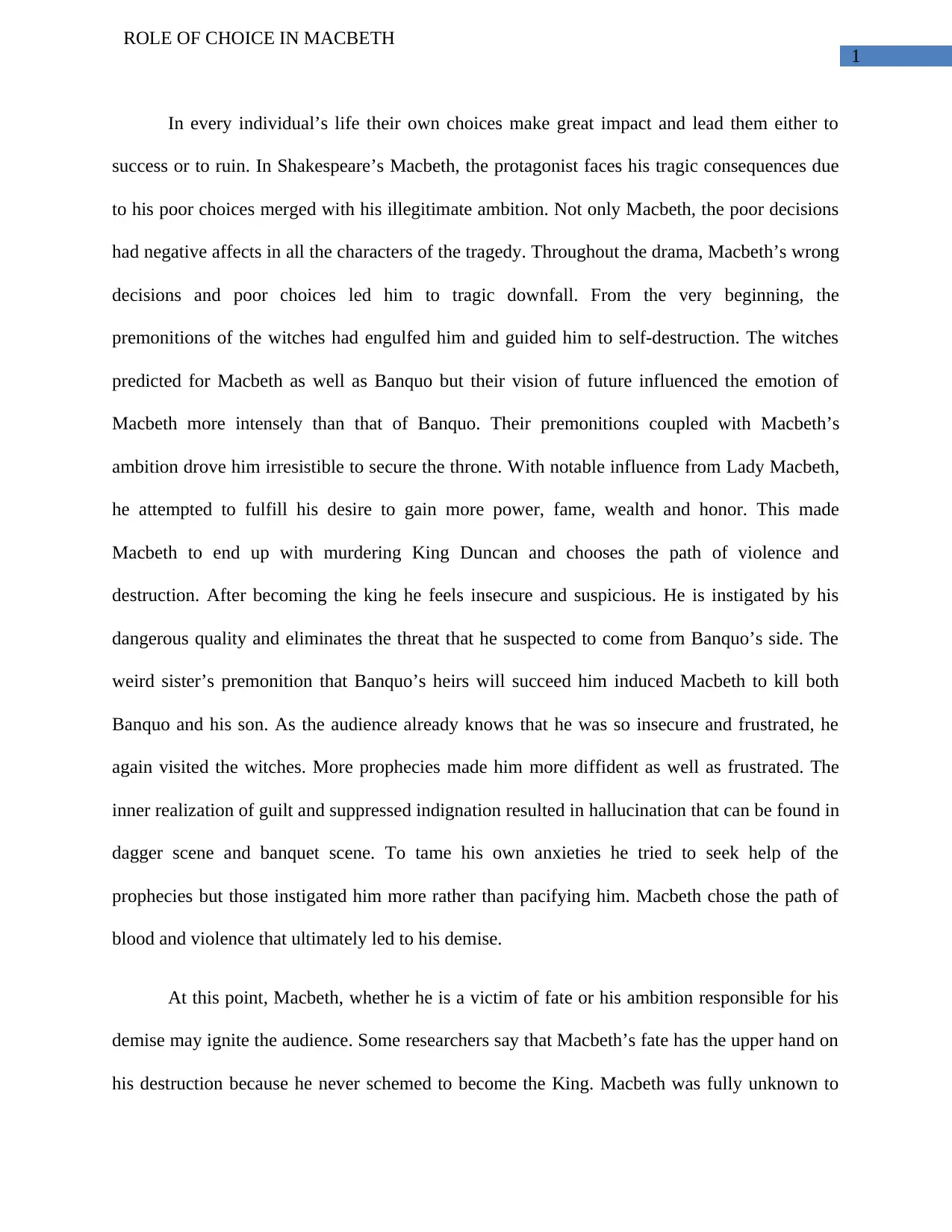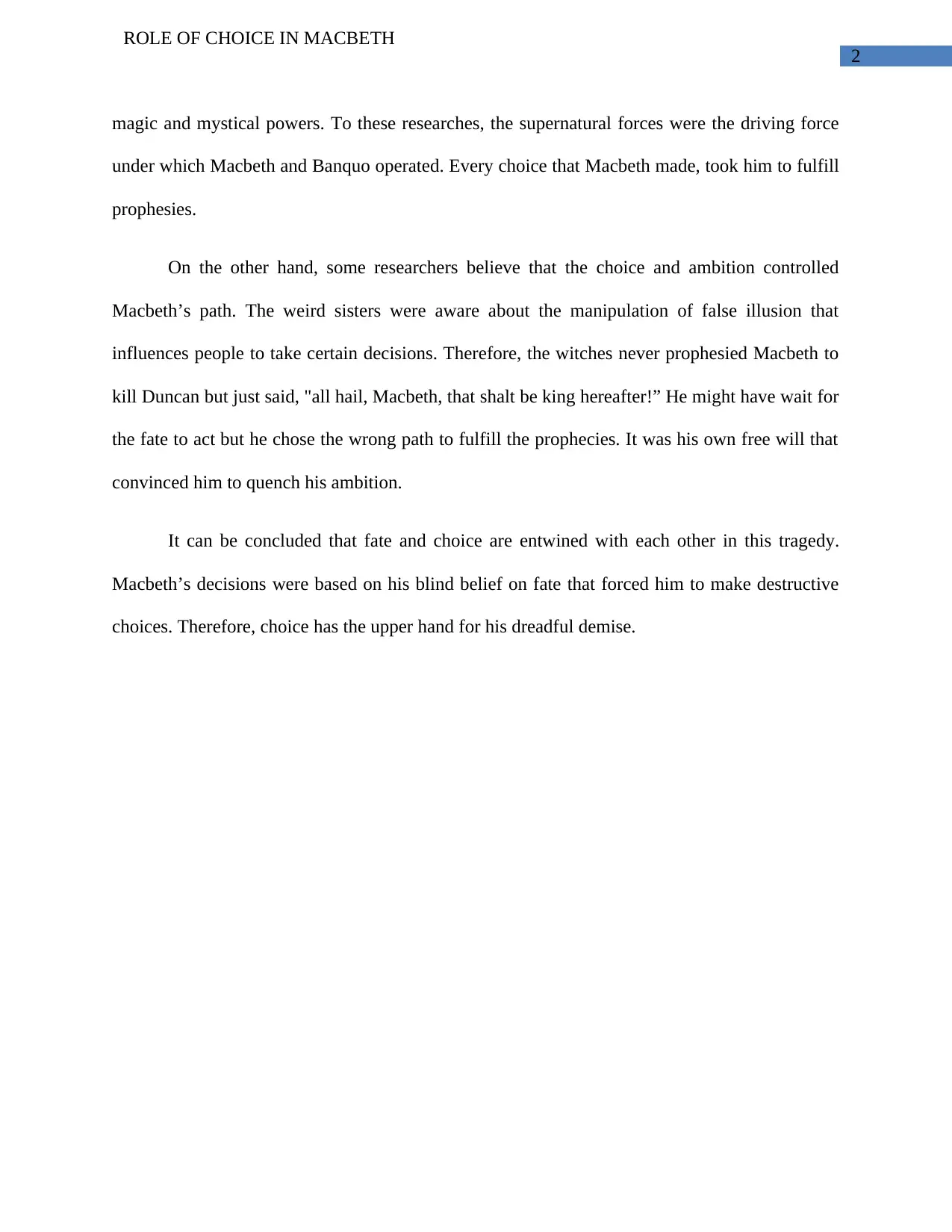The Significance of Choice and Free Will in Shakespeare’s Macbeth
VerifiedAdded on 2020/05/04
|3
|604
|112
Essay
AI Summary
This essay examines the pivotal role of choice in Shakespeare's Macbeth, arguing that Macbeth's tragic downfall is a consequence of his poor decisions and unchecked ambition, influenced by the witches' prophecies and Lady Macbeth's persuasion. While the witches' premonitions sparked his ambition, Macbeth's choices to murder King Duncan and eliminate Banquo, driven by insecurity and a thirst for power, ultimately sealed his fate. The essay explores the debate of whether fate or free will is more responsible for Macbeth's demise, concluding that Macbeth's choices, based on a blind belief in fate, led him down a path of violence and destruction, highlighting the significance of individual agency in his tragic end. Desklib provides a platform to access this and many other assignments for students.
1 out of 3







![[object Object]](/_next/static/media/star-bottom.7253800d.svg)